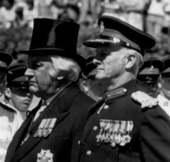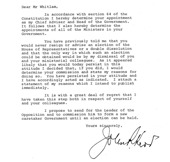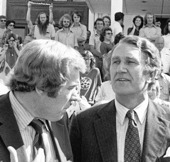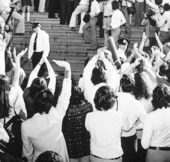Act III:
The dismissal
Both political camps anticipated victory in the resolution of the crisis. But only one side could prevail. By the end of the day, the Senate would pass Supply, Parliament would be dissolved, and leadership of the nation would be thrown into uncertainty.



